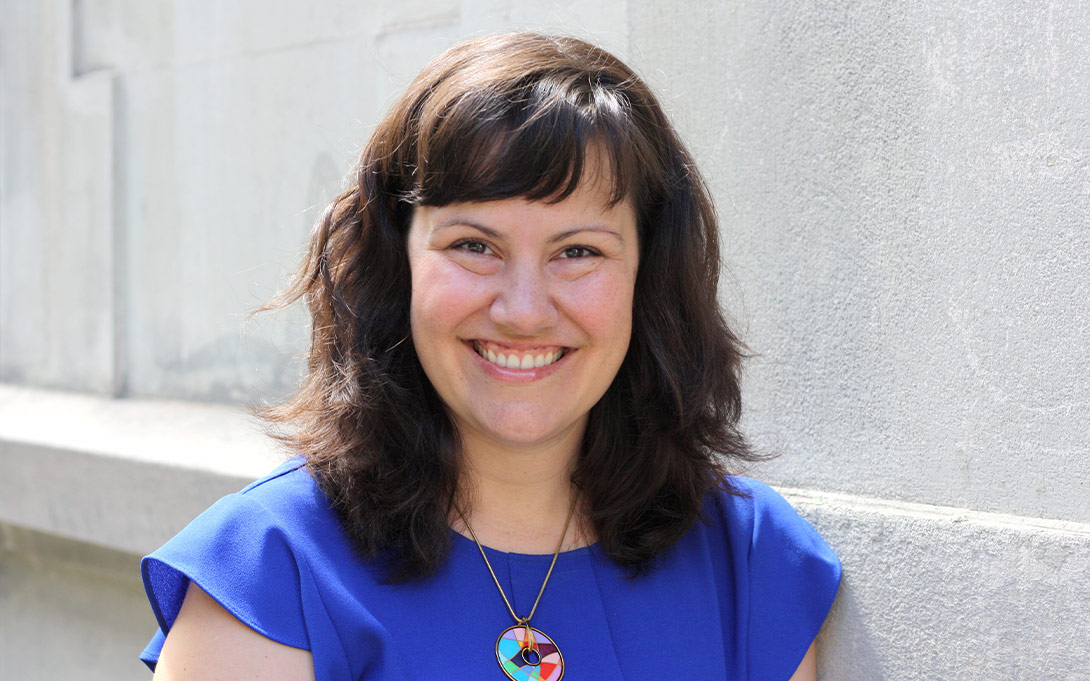
The Ford School is delighted to announce that a number of faculty members will join our community this fall. To introduce them to the Ford School and University, we’re running weekly Q&As throughout the summer that touch on their policy and personal interests alike.
Here’s Natasha Pilkauskas on the appalling statistic that drives her, expanding our definition of family to improve policy outcomes for children, what she's teaching, what she's reading, her superpower (and the one she wishes she had), and more.
Q: What inspired you to pursue a career in your field of interest?
Pilkauskas: I was in a class at the Kennedy School, where I got my master's degree in public policy, when I found out that about one in four kids in the United States lives in poverty. I found this appalling. The U.S. is one of the richest countries in the world. We shouldn't allow so many children to grow up in poverty. At the time, I was planning to focus on international policy, but I changed my mind to focus on U.S. social welfare policy and to think about ways in which we might change that statistic. That was 12 years ago. Unfortunately that statistic is still true today.
Q: Describe one of your recent studies or publications—the focus, why it matters, and what you learned.
Pilkauskas: A lot of my research is focused around the role that grandparents play in the lives of grandchildren. Some of my work looks at the wellbeing of children who live with a grandparent and a parent, and other work has been focused on grandparents who are raising their grandkids without the parent present. I think one of my most interesting findings in this area of research comes from a recent study I had published in Development Psychology.
I found that 24 percent of children from birth to age five live in a multigenerational household (with a grandparent and a parent) and among children in poverty, that figure is closer to one-third. Many more children live with a grandparent and a parent than I had anticipated and it has implications for policy.
Social policy tends to focus on the nuclear family – or even more specifically on mothers and their children. Policymakers may want to think about expanding the definition of the family to represent what children really experience, as it has implications for how we structure policies. For example, there are policies that provide parenting education programs to low-income families, but they are targeted at the parents – not the grandparents who may also play an integral role in parenting these children. It also has implications for thinking about policy effectiveness, or how policies impact different populations. A policy that targets the elderly (say social security) may also have spillover effects on the young if the elderly grandparent is living with, or caring for, their grandchild.
Q: What courses do you plan to teach in the coming year?
Pilkauskas: Next year I will be teaching child and family policy – both at the undergraduate and graduate levels.
Q: Reading anything for pleasure? Books on your nightstand?
Pilkauskas: All the Light We Cannot See by Anthony Doerr is my current pleasure book, but Picketty’s Capital is sitting on my nightstand, along with a couple of issues of Cook’s Illustrated magazine I have yet to flip through.
Q: The superpower you have, or wish you had?
Pilkauskas: My husband and I like to say everyone has a superpower – mine is that I have a very good sense of direction. His is his ability to sleep anywhere. In many ways I wish I had his superpower, I’d love to be able to just take a nap whenever I needed one! But really, I’d love to be able to fly.
Q: Something most people don’t know about you?
Pilkauskas: I'm half Spanish and I grew up almost entirely overseas, and it really shapes how I see the world. I have lived in England, Switzerland, Germany, Belgium, and Italy. I have technically never actually lived in Spain, but have spent so much time there I might as well have lived there too! My family is from a town near Pamplona (Hemingway, running of the bulls) and Basque food is some of the best in the world.
Check out Natasha's bio and head over to Twitter to welcome her to the Ford School and the University of Michigan.